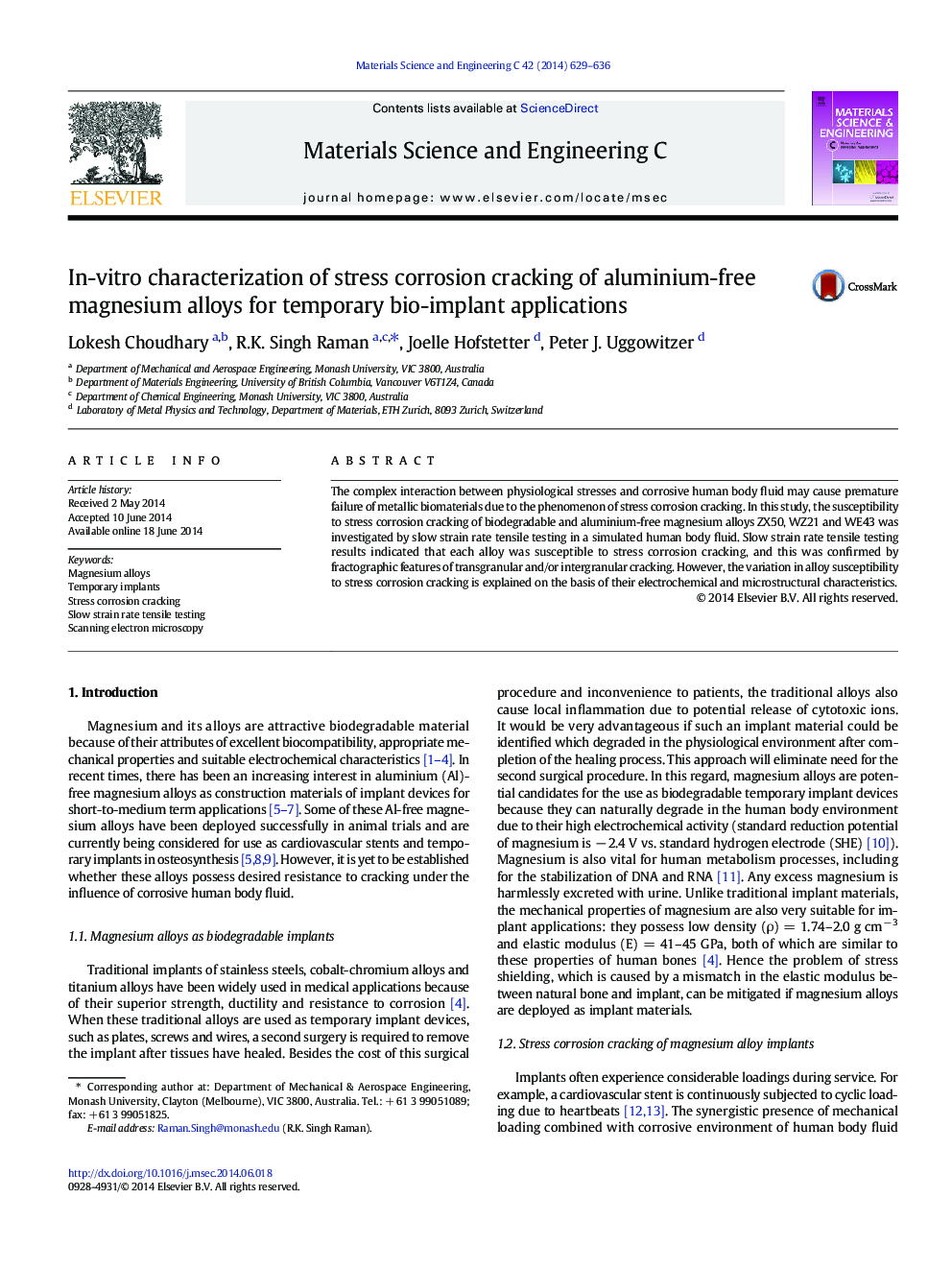| Article ID | Journal | Published Year | Pages | File Type |
|---|---|---|---|---|
| 1428678 | Materials Science and Engineering: C | 2014 | 8 Pages |
•Magnesium alloys, ZX50, WZ21 and WE43, are susceptible to the SCC in m-SBF.•Alloy ZX50 is least resistant to the SCC in m-SBF.•Combined role of anodic dissolution and hydrogen-assisted SCC is explained.
The complex interaction between physiological stresses and corrosive human body fluid may cause premature failure of metallic biomaterials due to the phenomenon of stress corrosion cracking. In this study, the susceptibility to stress corrosion cracking of biodegradable and aluminium-free magnesium alloys ZX50, WZ21 and WE43 was investigated by slow strain rate tensile testing in a simulated human body fluid. Slow strain rate tensile testing results indicated that each alloy was susceptible to stress corrosion cracking, and this was confirmed by fractographic features of transgranular and/or intergranular cracking. However, the variation in alloy susceptibility to stress corrosion cracking is explained on the basis of their electrochemical and microstructural characteristics.
